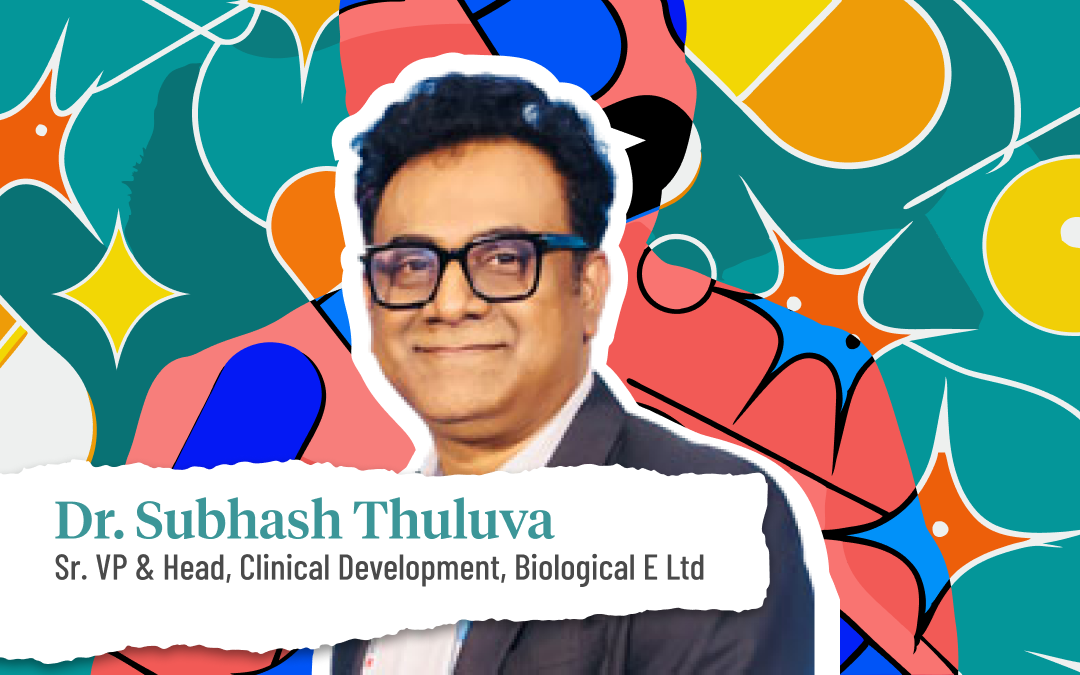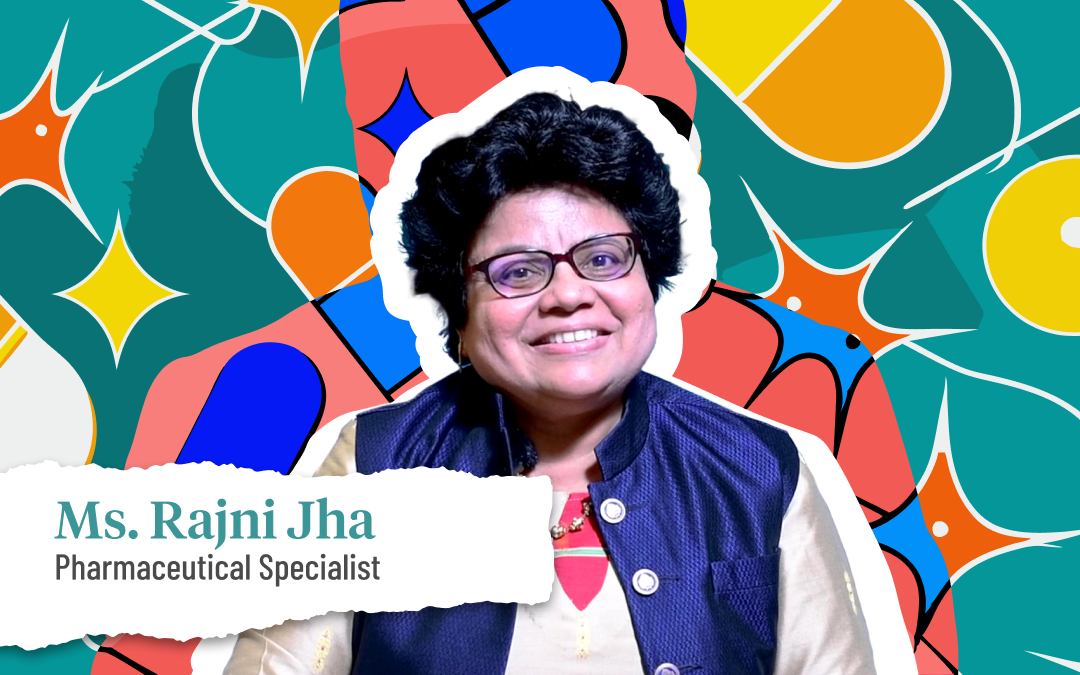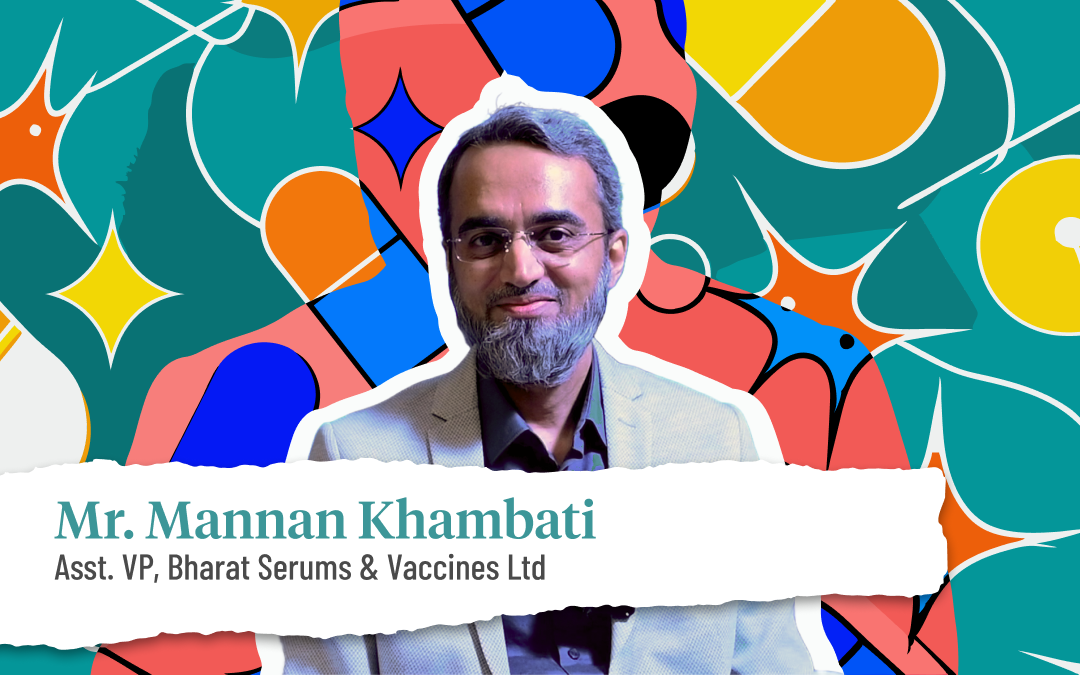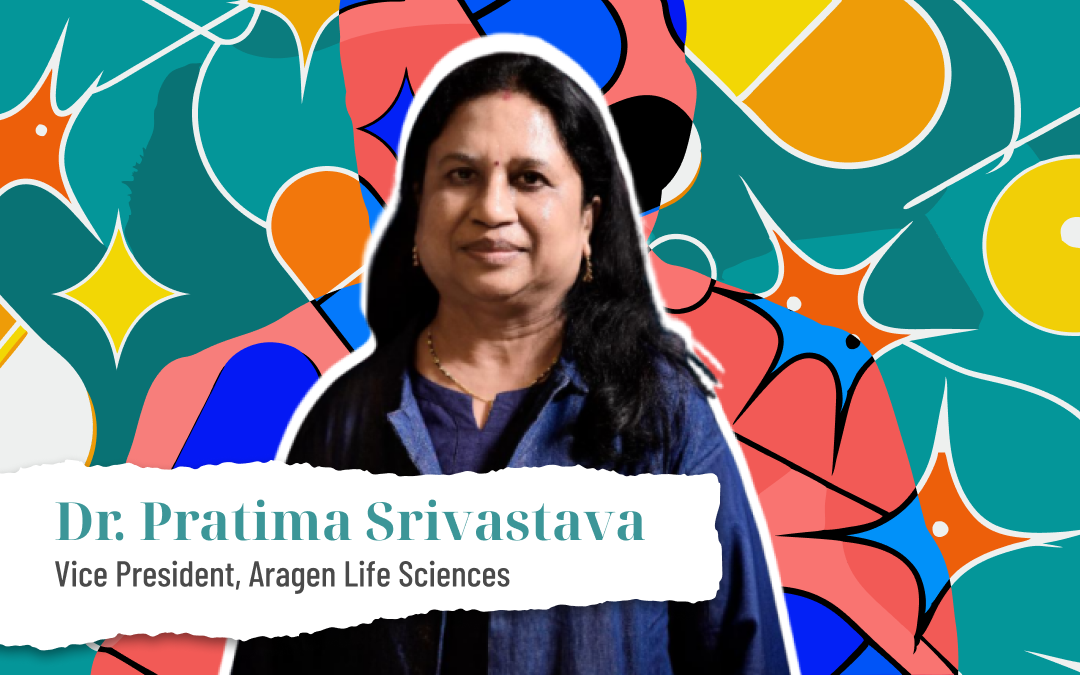QnA
Interview | February 10, 2025
ABOUT
Pharma Now: Welcome to Pharma Now, Mr. Satish Kumar. It’s an honour to have you here today. From what I’ve read about you, I can say that your journey is very inspirational. You’re the son of a farmer. You refused a job that would pay you Rs. 8 million. Instead, you opted to establish a startup in the skill development segment. Your path and decisions seem to be very out of the box because I imagine only a few people would turn down such an opportunity. So, my first question to you is: How did you come up with this concept? What gave you the courage to reject this job and establish a startup?
Mr. Satish Kumar: The only reason is: I’m a service-oriented person. Being a service-oriented person is what I learnt from my gurus. Your knowledge, expertise and experience won't help you–it’ll help society also. This is what I learned from Dr T. V. Narayana, the former president of the Indian Pharmaceutical Association. When I was pursuing B. Pharm, D.Pharm and M. Pharm, we didn’t have many luxuries. We didn’t even have smartphones to learn. That’s why we knew the value of a single minute and a single rupee. Today, college students dedicate themselves completely to bookish knowledge. Bookish knowledge will earn you 100/100 marks but won’t teach you skills. That’s why I started Clinoxy. I wanted to improve the skills of pharmaceutical students. Clinoxy’s vision and mission are to offer a platform for every pharmacy professional to explore and excel in their professional career.
Pharma Now: Through Clinoxy, which skills are provided to students? Also, which students are best suited for the programs you offer–B. Pharm students, M. Pharm, or students with higher degrees?
Mr. Satish Kumar: At Clinoxy, we provide online and offline skill development training programs for all the students. B. Pharm, M. Pharm, Pharm.D, MSc, BSc, MBBS and BDS–all life sciences graduates can use our training programs. Clinoxy’s main vision is to create awareness about opportunities in corporate companies like Novartis, Cognizant, Tech Mahindra, Cyient and GSK. We provide skill-oriented training programs like clinical research, pharmacovigilance, clinical data management, medical writing, scientific writing and regulatory affairs. Using these training programs, students can boost their professional career. They can upskill and get opportunities immediately after completing their graduation.
Pharma Now: How did you come up with the idea for this startup? You’ve had a successful career in the pharmaceutical industry. What motivated you to switch to this field?
Mr. Satish Kumar: I finished my Diploma in Pharmacy in 2009. In 2012, I completed my Bachelor’s in Pharmacy. Then, in 2014, I completed my Master's in Pharmacy. I started my career in 2012 while I was pursuing my Master’s. The first company I worked at was Granules India Limited. After that, I got an opportunity to work at Parexel. I worked at Parexel for about 4 years in the pharmacovigilance department. Then, I moved to Tech Mahindra, and after that, I moved to Cyient as a medical and scientific writer. I joined as an associate project lead for medical writing at ClinChoice. Then, I moved to Cyient Limited as an associate project manager, where I served for about 1.5 years.
In total, I have 7 years of work experience in all fields of clinical research, pharmacovigilance, and clinical data management. After working in so many companies, I wanted to ensure that my learnings and expertise wouldn’t financially and professionally support only me. My intention and vision was to give back to society. That’s why I turned to the startup.
Pharma Now: You mentioned that you also provide online skill development for students. Does it include specific software? Do students get opportunities to use this software while pursuing their B. Pharm and M. Pharm?
Mr. Satish Kumar: No. That’s the gap in our academics. The current Pharmacy Council of India (PCI)–including their President and team–are working hard to implement these changes. The current team at PCI is working very well, and Dr T. V. Narayana has also suggested that the PCI implement new changes. So, they are taking steps to incorporate such software into academics.
Pharma Now: If the current academics do not use such software, are they important for students? What is the importance of learning this software in students’ careers?
Mr. Satish Kumar: After completing any of the pharmacy degrees, students have bookish knowledge. Once they join a company, they understand the complete picture. They don't know how to operate software. Many students can’t operate Microsoft Excel, PowerPoint, and Word. That’s why we need to implement and introduce common software at the college level so that we can groom students at the college level.
Pharma Now: Learning such software will help students meet industry requirements, which is critical because right now, many students complain about the lack of opportunities. But, as you might know, India’s pharmaceutical sector is growing rapidly, with many jobs and opportunities. We’re considered the pharmacy of the world by many. So, how do these two perspectives meet: Do our students really have no opportunities or are there many but students can’t take advantage of these?
Mr. Satish Kumar: Let me clarify. Industries related to medicine, science, drug development and clinical trials are evergreen. There’s no end point for them. We do have a lot of resources in India, but there is no skill–that is the only reason. For example, students say that they’ve got 90/100 marks in a subject. But when I ask them a related question, they can’t explain, but they can write the answer. So, we have resources. You can see that most Indian people are working abroad, and they’re thriving.
Pharma Now: So, students need to upskill themselves to thrive in the industry. They need to learn new skills and gain more knowledge. Is that correct?
Mr. Satish Kumar: Exactly, there is no doubt at all. We need to implement this development at the college level. If we introduce some of these extra skills at the college level, students can groom themselves during their college time. We have jobs, we have companies and we do have resources and manpower in India, but the only thing missing is the skill set.
Pharma Now: Can a student, who is passionate enough to study, learn the skills all by themselves?
Mr. Satish Kumar: They can learn. But they should be mentored by an experienced candidate. At Clinoxy, we are experienced professionals, and we have already worked in companies. We know the exact operations of a company and what the company will do in the future. So, the training programs at Clinoxy help students learn necessary skills in an experienced and practical manner and get hands-on experience.
Pharma Now: Experiential learning is said to have the most impact on students. How do you implement experiential learning at Clinoxy?
Mr. Satish Kumar: I have conducted 200-250 interviews. Out of these 250 interviews, I have never preferred a candidate with 90/95 marks because I don’t believe in that. I always believe in skills. By getting experience in organisations, I groomed myself and started Clinoxy.
Pharma Now: Excellent. Clinoxy seems to be filling an important gap in the industry. So, what will the future look like for Clinoxy 5 years later?
Mr. Satish Kumar: I have a great vision, and I know what will happen by 2027. I do have a great vision of what Clinoxy will do in India for the pharmacy division. I’m sure that all students will be groomed under the guidance of Satish Kumar. We will write to every institution in India, and we will groom many students. We are going to guide them, and we are going to make the pharmacy profession successful.
Pharma Now: That's wonderful and very confident, Satish. Can you shed more light on how your business model works? How do you acquire students and train them? And once they are trained, do you provide any job placements?
Mr. Satish Kumar: Usually, most colleges invite us to host an awareness session or speak on any topic. Through that, we introduce our program to students. They are free to join the session. We also go to colleges and conduct different seminars and webinars. Students can join online and offline training programs. We offer 2-3 months of diploma and postgraduate diploma courses. We cover many modules in a single training program. That is what I learned in my professional career. If you complete one or two modules, you are putting a barrier between yourself and opportunities. If you have knowledge of many domains, you will have many opportunities. Your profile will suit every department. That is what we are teaching at Clinoxy.
Pharma Now: That's very interesting. So Satish, artificial intelligence, blockchain, and machine learning are the must-have skills now. Many organisations are requiring candidates to know at least the basics of these. How is Clinoxy helping students learn these skills?
Mr. Satish Kumar: We are going to teach AI. We are also going to start a new project called Course10X. We are going to plan and work with blockchain technology and AI. We will introduce courses required for all undergraduate and postgraduate students using artificial intelligence and 3D technology. This is what our upcoming project looks like.
Pharma Now: What do you think will be the impact of AI on the pharma industry?
Mr. Satish Kumar: Digitalisation is very important to get accurate results. Using AI, we can minimise errors. For example, using computer technology systems and databases and blockchain technology, we can secure confidential data. For example, people can make errors, but even AI and blockchain technology may sometimes give negative results. So, we have positive effects of AI, and we also have negative ones. It all comes down to how well we utilise AI–that’s important.
Pharma Now: You’re doing an amazing job. I'm sure your initiative will help Indian students upskill. What is your advice for all pharmacists starting their careers?
Mr. Satish Kumar: I’ll say: If you are a continuous learner, there is no limit to success. If you are a learner, there is no need to pay a single rupee. You have mobile phones, libraries and PhD scholars. Many have the resources but fail to utilise them. That is our mistake. We can’t blame the profession, lecturers, company staff, or our country. We are making mistakes. If you properly utilise all the resources you have, you will succeed in your life–there is no doubt. And the people who will follow you will succeed eventually.
Pharma Now: That’s very well put. Thank you for sharing these insights with us and for joining us at Pharma Now.
Mr. Kumar: Thanks for the opportunity.
Well Said
11 months ago

FT - Dr. Subhash Thuluva

FT - Ms. Rajni Jha

FT - Mr. Mannan Khambati

FT - Dr. Pratima Srivastava

FT - Dr. Subhash Thuluva
Dr. Subhash Thuluva, Senior VP at Biological E, shares his 25-year journey in clinical development, ...

FT - Ms. Rajni Jha
Ms. Rajni Jha, a seasoned pharmaceutical specialist, shares her journey from the lab to becoming a l...

FT - Mr. Mannan Khambati
Mr. Mannan Khambati, AVP of Biotech Manufacturing at Bharat Serums and Vaccines, shares his inspirin...

FT - Dr. Pratima Srivastava
Dr. Pratima Srivastava, Vice President at Aragen, shares her remarkable journey from aspiring scient...